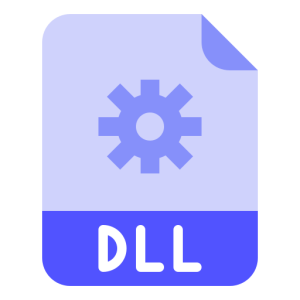Description
LIBGCC_S_DW2-1.DLL is a dynamic link library (DLL) file that is an essential component of the GCC (GNU Compiler Collection) toolchain. It is specifically related to the DW2 (Dwarf 2) exception handling mechanism used by the GNU Compiler for C and C++ programming languages. The DLL contains functions and resources necessary for proper exception handling and stack unwinding during program execution on a Windows operating system.
This library plays a critical role in managing exception handling and stack unwinding for C and C++ programs compiled with the GCC toolchain. The DW2 exception handling mechanism allows programs to handle and recover from exceptional conditions during runtime, ensuring the stability and proper execution of the application.
LIBGCC_S_DW2-1.DLL is utilized by applications that are compiled using the GCC toolchain, which is often used by developers who prefer a free and open-source compiler for C and C++ programming languages. It is typically included in the distribution of GCC or provided separately along with the compiled binary to ensure compatibility and proper execution on end-user systems.
It’s important to note that the version number “1” in the filename (“LIBGCC_S_DW2-1.DLL”) represents the specific version of this DLL provided by the GCC toolchain. Different versions of the GCC toolchain might have different version numbers in their filenames. Users should ensure that they have the correct version of the LIBGCC_S_DW2-1.DLL file to avoid compatibility issues with software that depends on it.
Purpose and Functionality
LIBGCC_S_DW2-1.DLL serves a crucial role in providing exception handling and stack unwinding capabilities for C and C++ programs compiled with the GCC toolchain. Its primary functions include:
- Exception Handling: The DLL provides support for properly handling and recovering from exceptions (unusual conditions) that occur during program execution.
- Stack Unwinding: LIBGCC_S_DW2-1.DLL is responsible for unwinding the call stack and properly deallocating resources when an exception is thrown, ensuring that the program can safely exit or recover from the exceptional condition.
Common Use Cases
LIBGCC_S_DW2-1.DLL is primarily used in the context of software development and program execution involving C and C++ programs compiled with the GCC toolchain. Some common use cases include:
- Software Development: Developers utilize LIBGCC_S_DW2-1.DLL along with the GCC toolchain to compile their C and C++ programs and ensure proper exception handling and stack unwinding capabilities.
- Application Execution: Whenever a user runs a C or C++ program compiled with the GCC toolchain, LIBGCC_S_DW2-1.DLL is loaded into memory to provide the necessary exception handling and stack unwinding support.

